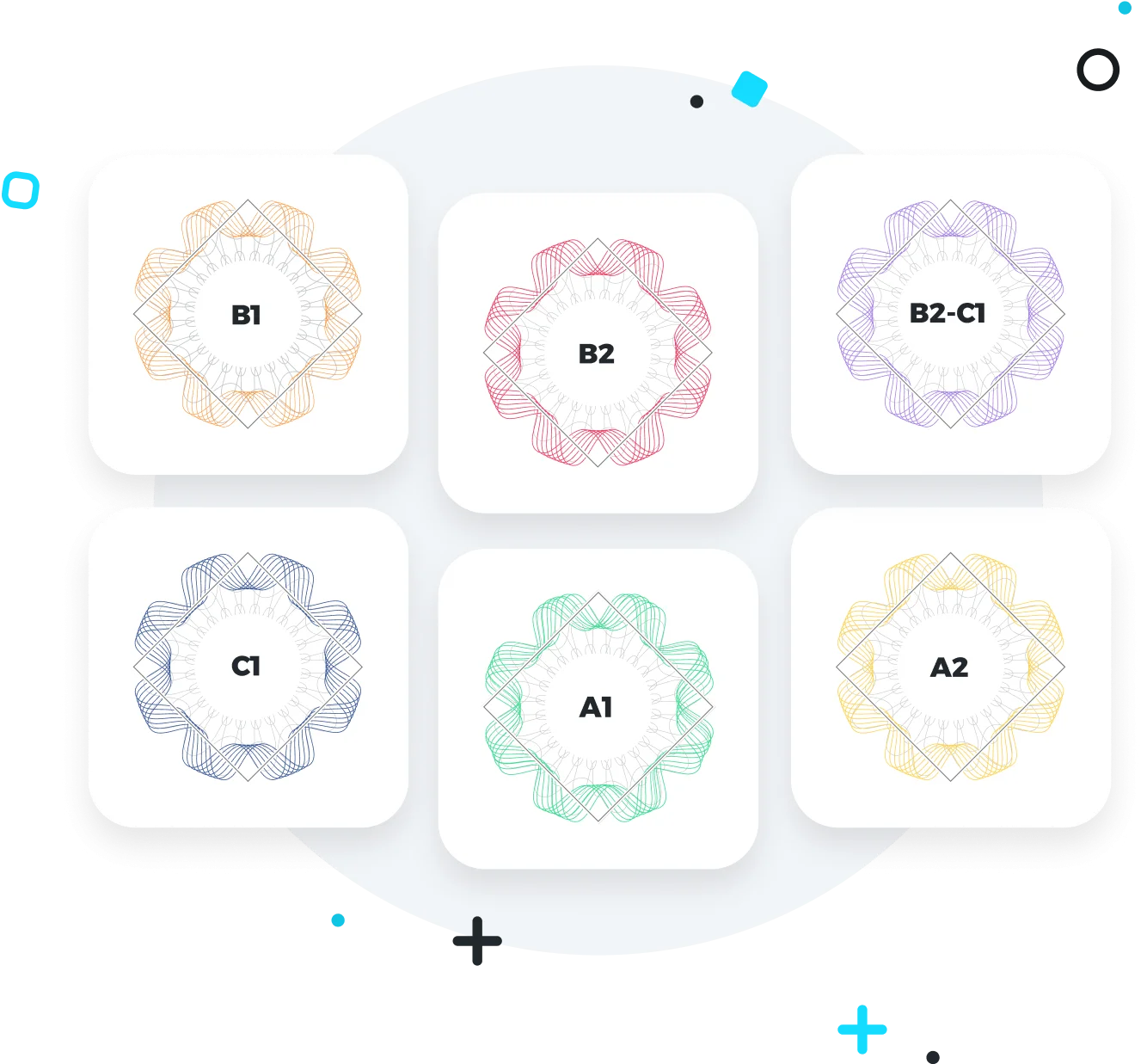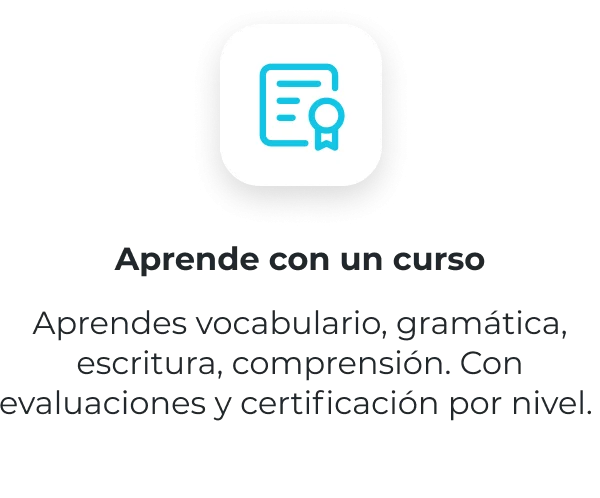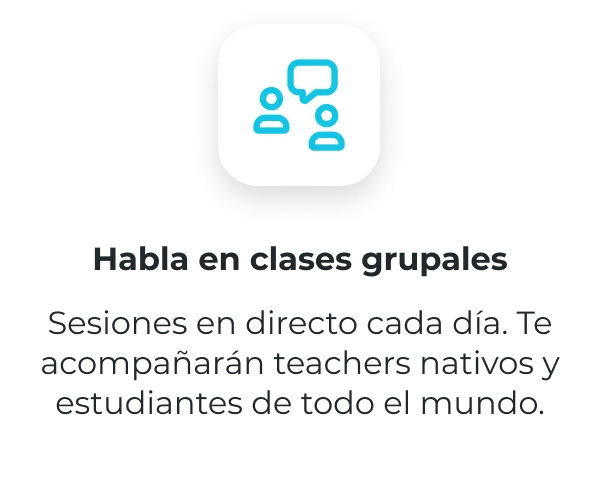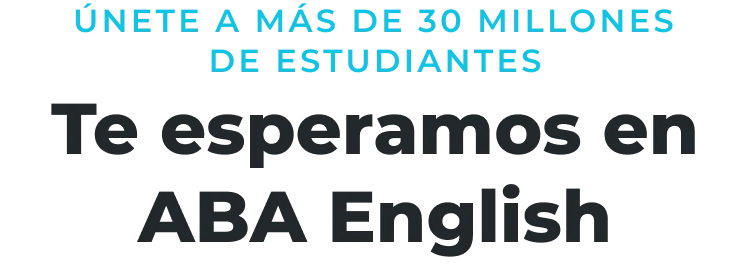Futuro continuo en inglés
El future continuous es el tiempo verbal apropiado para expresar algo que ocurrirá en el futuro y tendrá un cierto período de duración. Si quieres aprender más sobre su estructura y usos, no te pierdas este artículo en el que te explicamos todo lo que necesitas saber.
¿Qué es el futuro continuo en inglés?
El future continuous que también es llamado future progressive, es un tiempo verbal que se usa para indicar que algo ocurrirá en el futuro y que continuará por un cierto período de tiempo. Es por esta razón que uno de los verbos que hacen parte de su estructura se conjuga en gerundio, es decir, con la terminación -ing.
Este tiempo verbal es perfecto si quieres hablar sobre lo que estarás haciendo esta noche, mañana, o dentro de algunos años. Pero también tiene otros usos que veremos a continuación.
Usos del future continuous
Proyectarse hacia el futuro
El futuro continuo en inglés es útil si quieres expresar tus planes a futuro. Toma en cuenta que estos planes deben tener un cierto período de duración en el futuro, es decir, no son solo una acción puntual y específica, sino que deben alargarse por un tiempo determinado.
Ejemplos:
- I will be travelling for two weeks in July. (Voy a estar viajando por dos semanas en julio.)
- By this time next year I will be living in Amalfi Coast. (Para esta fecha el próximo año estaré viviendo en la Costa Amalfitana.)
Predecir eventos futuros
Este tiempo verbal también puede utilizarse para predecir o hacer suposiciones sobre eventos en el futuro.
Ejemplos:
- Melanie will be missing the beach once she’s back in Canada. (Melanie extrañará la playa cuando vuelva a Canadá.)
- They’ll be joining us shortly, I hope so. (Ellos se nos unirán en breve, eso espero)
Pedir información sobre el futuro
La forma interrogativa del future continuous también suele usarse para solicitar información sobre el futuro.
Ejemplos:
- Will she be going to the dinner tonight? (¿Ella irá esta noche a la cena?
- Will the kids be coming for Thanksgiving? (¿Los niños vendrán para el día de Acción de Gracias?)
Hablar sobre eventos continuos en el futuro
También puedes usar el futuro continuo para hacer referencia a eventos que esperamos que sucedan en el futuro y que tendrán una cierta duración.
Ejemplos:
- We’ll be having dinner with Thomas tonight. (Cenaremos con Thomas esta noche.)
- I’ll be visiting Van Gogh’s Museum next week. (Visitaré el museo de Van Gogh la próxima semana.)
+30 MILLONES DE ESTUDIANTES
Únete a la academia digital de inglés
más grande del mundo y aprende inglés
Estructura gramatical del future progressive
La estructura del future continuous en inglés es bastante sencilla y con seguridad la recordarás fácilmente con un poco de práctica. En este caso, necesitarás utilizar el verbo auxiliar will o el auxiliar shall. Pero veamos con más detalle la estructura para oraciones afirmativas, negativas e interrogativas.
Futuro continuo en afirmativa
En las oraciones afirmativas, se utiliza el auxiliar shall o will y el verbo principal se conjuga en gerundio, es decir, con la terminación –ing.
Sujeto + will/shall + be + verbo principal –ing + complemento
Ejemplos:
- They will be playing soccer on Sunday. (Estarán jugando fútbol el domingo.)
- She shall be sleeping when you get home. (Ella estará durmiendo cuando llegues a casa.)
Futuro progressivo en negativa
Para la forma negativa del futuro continuo, el auxiliar will o shall se transformará en will not o shall not, o si quieres usar la contracción, será won’t o shan’t. .
Sujeto + will not/shall not + be + verbo principal -ing + complemento
Ejemplos:
- They will not be taking the swimming course. (No estarán haciendo el curso de natación.)
- I shall not be working on Monday. (No estaré trabajando el lunes.)
Future continuous en interrogativa
Las oraciones en futuro continuo interrogativas, al igual que en muchos otros casos, requiere que el auxiliar inicie la oración.
Will + Sujeto + be + verbo principal –ing + complemento
Ejemplos:
- Will you be travelling next month? (¿Estarás viajando el próximo mes?)
- Will you be writing your dissertation this evening? (¿Estarás escribiendo tu tesis esta noche?)
¿Conoces tu nivel
de inglés?
Haz un test ahora.
Regístrate en nuestra página y accede gratis al test de nivel. En pocos minutos conocerás tu nivel y podrás seguir avanzando con el curso.

Diferencia entre el futuro simple y continuo en inglés
El futuro simple en inglés se utiliza para hablar de cosas que aún no han sucedido, es decir, se usa para acciones o condiciones que iniciarán y terminarán en el futuro. Por otro lado, como te hemos explicado anteriormente, el futuro continuo sirve para expresar una acción que se realizará en el futuro y tendrá cierto tiempo de duración.
| Futuro simple | Futuro continuo |
| Sujeto + will + verbo en su forma base + complemento | Sujeto + will + be + verbo –ing + complemento |
Oraciones y ejemplos en futuro progresivo
- I will be learning English this year. (Estaré aprendiendo inglés este año.)
- She will be eating tacos tonight. (Ella estará comiendo tacos esta noche.)
- They will not be coming to the party. (Ellos no estarán viniendo a la fiesta.)
- She will not be working tomorrow. (Ella no estará trabajando mañana.)
- Will you be coming home next week? (¿Estarás viniendo a casa la próxima semana?)
- Will they be buying the groceries on their way here? (¿Estarán comprando comestibles de camino para acá?
Ejercicios de future continuous
Ejercicios de oraciones afirmativas en futuro continuo
Para cada oración, escoge una de las opciones dadas.
1. They can go to the theater tonight. I _____________ dinner for the kids while they’re out.
a. will be cooking
b. will cook
c. will have cooked
2. John and Anna _______________ in New York by the next month.
a. will live
b. will be living
c. will have lived
3. Donna is 2 years old, she _____________ to school, by this time next year.
a. will go
b. will be
c. will be going
Respuestas:
1.a, 2.b, 3.c
Ejercicios de oraciones negativas en futuro continuo
Conjuga los verbos como sea necesario en cada oración.
1. She’s feeling sick, she ______________ (not, go) to school tomorrow.
2. I have a different point of view, so I ___________ (not, talk) in the conference.
3. They ______________ (not, learn) French this year.
4. My mom and I _________________ (not, travel) to Spain.
5. He ___________ (not, leave) tonight because of the storm.
Respuestas:
- will not be going
- will not be talking
- will not be learning
- will not be travelling
- will not be leaving
Ejercicios de oraciones interrogativas en futuro continuo
Reescribe las siguientes oraciones de forma interrogativa.
1. Dr. Johnson will be attending the conference in Washington.
2. I will be going home for the holidays.
3. She will be having a work interview.
4. They will be booking their flight online.
5. We will be cleaning the house the whole day.
Respuestas:
- Will Dr. Johnson be attending the conference in Washington?
- Will I be going home for the holidays?
- Will she be having a work interview?
- Will they be booking their flight online?
- Will we be cleaning the house the whole day?
Otros enlaces de tu interés:


























